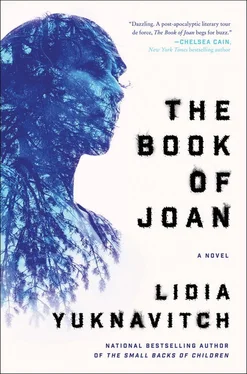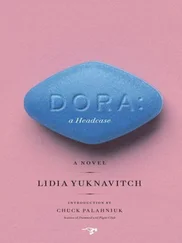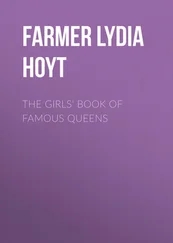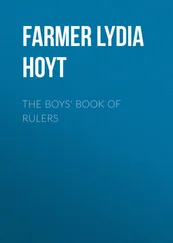“I thought for a moment I could smell the letter—something about rain. Something about sleep. We were afraid to touch it. We stared at it as if it were something sacred.
“For it was not just a thick lock of silkblack hair, miracle enough. The thick black lock of hair had a fastening of sorts. Looped around the hair to keep it intact, curled tight, as if someone had waited for the rigor to achieve perfect pliability before carefully molding it, curling it into a seashell spiral, was a pinkie finger. Only the slightest idea of life left in its grayblue skin…”
He pauses. He stares at Joan. “We made an acquiescent vow. We would from that day forward cease making crude, mistaken images of you. The CIEL’s plan—to ravage what was left of Earth and us—was a hair’s breadth away from success. If you were out there, you were worth finding. I’ve given this end of my life to finding you.
“When that boy arrived with your hair,” he says, winding his fingers into her long black hair, “and your finger, I was shocked, but not beyond belief. As a boy, I’d seen you walk out of fire in a wood. I’d seen you walk from the sea, glowing like the aurora borealis. I’d fought alongside you and watched you not die and not die when others—anyone else—would have. And here you are. Maybe it is enough. To see that you are still alive.”
Leone swallows. It seems the only sound for miles.
All three of them know it is not enough. Their reunion has only one aim.
Leone rises and walks a small distance away. As she cracks shrub twigs into the fire, the smell of sage and moss and peat fills the cavern. Peter stretches up and cranes his neck to see Leone. “I missed her,” he says. “Believe it or not.”
Joan looks up at him and almost smiles.
Above them, firelight paints the cave ceiling and walls. Some of the worms Joan placed on Peter’s forehead trickle down toward his eyes like little black tears. He brushes one away.
“It’s okay,” she says, “let them. They eat all sorts of bacteria.”
“What difference does that make?” her brother asks her.
And he is right. None. There is only one reason for him to be alive in that cave with them, and any time wasted on childhood nostalgia is wasted energy.
Joan looks over at Leone. Get his story, her face reminds Joan. Stories save lives. They give shape to action.
Joan suddenly hates herself for doing this to him. What can he possibly tell her that she doesn’t already know?
Leone brings over a cup of hot water filled with ginger root and belladonna. She pulls Peter back up onto her thighs while Joan feeds him sips of the hot liquid.
“Thank you,” he says. “There isn’t much time, apparently, and you’re still missing an important part of this story. Until now, it was a tragedy.” He pauses. “Come on now, don’t look so glum. I already died, remember? Besides. I have a present for you.” Pushing himself up to a sitting position, he buries his hand deep within the pocket of his pants, searching for something. When he brings his hand out between them, Joan sees a spider, a long-legged silvery little thing.
“What the hell is that?” Leone interjects, hovering over his hand and squinting.
“This has traveled a long way to find you,” he says. He reaches his hand out toward Joan, and she in turn opens and offers her hand, and the tiny silver spider crawls the bridge between them until it sits in her palm.
“Now let me tell you what I know,” he continues, “before my… what should we call this? Before my second leaving?”
Joan laughs. Laughter and tragedy, two sides to the same face.
Once, when they were children—maybe when Peter was seven, maybe younger—Peter had developed a fever so intense they thought he might die. When the doctors came to their home, they discovered that his brain was swelling. His skin grew covered with palm-size scarlet blotches, like red shadows of leaves. Then all of his hair fell out. Encephalitis. In the days just before his fever lifted he’d been delirious, and he told Joan that he’d seen her turn to fire and ascend into the night sky, like a long-missing star returning to its constellation.
The silver spider crawls across Joan’s palm and up her forearm. Even in the diffused light of the cave she senses that it is not entirely natural, although it looks biological enough. Its movements seem a little too well ordered; the thin needles of its legs are as weightless and delicate as a spider’s, and yet somehow mechanical. Is she overthinking things? Haven’t her own movements over the years become calculated and inhuman?
“It’s an AV recorder,” Peter says. “The spider. Mostly biological, but wet-wired. We’ve developed tens of thousands of them, in differing guises. Homebred troglodytes. Spiders, worms, salamanders. Underground creatures. The spiders seem to travel the best between worlds without deterioration of data.”
Joan’s head shoots up and Leone’s jerks toward Peter. “Between worlds?” Joan asks.
Peter inhales and holds his breath. Joan wonders how many breaths he has left. She is already thinking of where to bury him—across the wide lake in the crystal green waters reflecting the entire ceiling and opening of the cave like a moss-colored mirror, perhaps, or in a grotto where geological patterns make malachite and azure seem to shimmer alive along the walls. If she feels anything about the word brother, it is here, in this space that smells of water and dirt and living things. Her memory remains loyal to all the times they played in the woods together as children. His death, then, should bring life back into the walls and ground and water.
A faint ticking sound scatters across the walls of the cave. Water seepage, or bats, or just geology stretching.
“These troglodytes we’ve created, they can travel up and down Skylines. They can ride telluric current without a trace. We’ve been gathering tactical information about CIEL inhabitants and technologies for more than three years now. When they started sending explosives down the Skylines, it revealed that the lines could be used to transfer matter, not just energy. The more death they sent down the elevators, the more troglodytes we sent up, like invasive species. We’ve developed maps of their entire territory: their weapons systems, their food and energy supply chains, their social organization, their power center.
“And we know something else. We know they have a problem. A big one.”
“Fuck,” Leone whispers, and in her voice Joan hears the trace of the question she knows they all three share. “What about humans? Can humans travel the Skylines?”
Peter looks down at his own arms and hands. “We don’t know about humans. So far, no. At least, no humans like me .” He pauses and shifts his gaze away, then continues.
Leone makes shapes in the dirt with her foot.
“But we do know how to draw CIEL attention to a specific target. We know how to draw their energy to a source—we’ve successfully blown former ammunitions dumps or wired old technology heaps to create something interesting for them to track down here—which gets their attention, and when we do, they send a bomb exactly where we want them to. Or clusters of them. And then, when the explosives start raining down, our troglodytes are able to use fissures in the ensuing electrical storm to travel up.”
Joan and Leone exchange looks. They’d just witnessed such an attack—the sky opening up and nearly blasting them to fuck.
Peter looks back up at them. “We can’t win any wars with weapons. But we can using data. At this point there’s almost nothing we don’t know about their technologies. And something of their day-to-day life, though the images taken are blurry and static.”
Читать дальше












